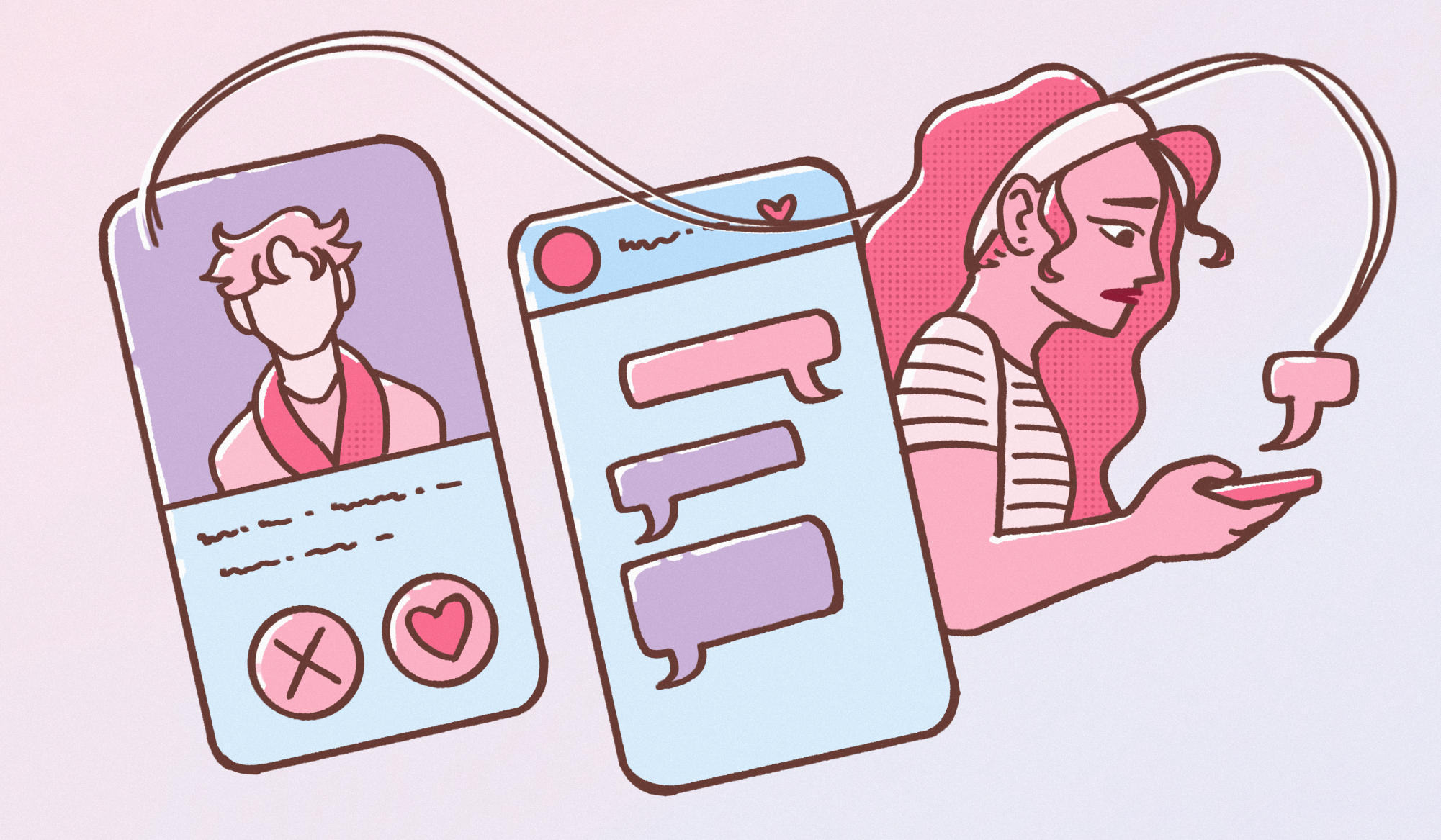Phones and texting have become such an integral part of American dating culture that it is almost impossible to imagine a world where people courted each other without direct messages. Historically, before the age of smartphones, people met and connected in person, falling in love through plain, old-fashioned face-to-face interaction. From there, emails, letters, and landline phone calls fostered a relationship. This modern shift away from these more genuine forms of interpersonal communication to purely digital interaction is a change for the worse. Younger generations and college students should consider approaching dating and relationships without the need for constant, unlimited texting communication.
The responsibility to text or interact through some form of social media is an expectation that society has pushed onto the ritual of courtship in the modern era. A poll by Statista shows that 38% of couples trade more than 11 texts per day and over 55% of couples trade more than 5 texts per day, while psychologists recommend 3-5 texts per day. Regardless of individual personalities, the expectation is to text, and the lack of a text or a call is seen as strange or even a red flag. This sets a mold and reinforces the “obstacle course mindset” toward dating, whereas the process of courtship is seen more as a certain number of steps that must be taken rather than what it truly is: a natural, unpredictable, and far more realistic process of human understanding and knowledge.
Danielle Maurer, a Master’s student at Smith College, describes texting in relationships as a weak form of connection due to a lack of body language, an inability to read emotion, and the complexity of confrontation. Maurer suggests that by substituting genuine connection for just conversation, we are doing a disservice to ourselves and slowly forgetting the feeling of true connection. Ultimately, a strong desire for connection is what drives couples to text each other often, but texting does not properly supply the kind of connection these couples are looking for.
The dominance of phones in dating culture would not bea problem if it was not for the fact that online interaction is a large contributor to people’s dissatisfaction in relationships. A study conducted by researchers at the University of North Carolina found a negative correlation between the share of texting and satisfaction in a relationship. This primarily stems from an association of avoidance or anxious attachment with higher texting shares. Interestingly enough, it seems that texting volume had a minimal effect on satisfaction whereas frequency was a more important factor. This suggests that those “good morning” and “good night” texts that are so valued in modern relationships could be detrimental.
However, I would argue that creating this constant cycle of attachment and codependency through strict text monitoring is never healthy for any relationship. A healthy amount of independence is the key to a successful relationship. The ability to spend time in solitude is a fundamental human skill that can lead to greater life satisfaction and contentment. Moreover, human understanding is more important in a relationship than attachment. It is not so much the presence of a “good morning” text, but personality compatibility and shared values, that define a relationship. However, modern expectations of texting would have us thinking otherwise.
The rise of dating apps is the ultimate phenomenon of this phone omnipresence in dating culture. A study conducted by Savanta ComRes and commissioned through the Marriage Foundation found that couples who meet online have relatively higher divorce rates, standing at about 21%. On the other hand, couples who met through more traditional forms, like school or mutual friends, have a divorce rate of 10-14%. One explanation for this surprisingly low rate of success among online couples is the concept of social capital. When people are introduced to and interact with one another through school or family and friends, there is a pre-existing reliability and trust that comes with an established knowledge of reputation. Online coupling leaves less access to long-term information about a partner.

There is no easy fix to this problem so ingrained in our present culture. Phones are omnipresent in modern society and an overall shift away from that is highly unlikely. However, I recommend starting on a personal level by erasing the expectation of constant text communication in a relationship and promoting face-to-face interaction. This comes with a level of self-reflection and digging deeper to understand the drive for codependency. Ultimately, the next time you feel inclined to judge someone based on their response time or their online availability, remember that it is healthy to be by yourself and that unhealthy reactions elicit the symptoms that result in higher divorce rates and relationship insecurities.








